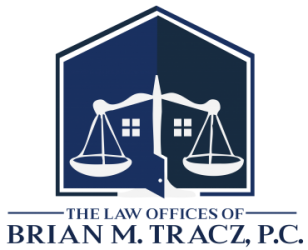

An Experienced Estate Planning Attorney Will Help You Navigate the New York State Probate Process with Peace of Mind
The Law Office of Brian M. Tracz, P.C. has more than 30 years of experience successfully representing clients in estate planning and elder law across New York City and Long Island. Extensive expertise in estate planning and asset protection has cemented our reputation for excellence in estate administration and elder law.
Surrogate court procedures can differ across Brooklyn, Queens, Manhattan, the Bronx, Brooklyn, Staten Island, Nassau County, and Suffolk County. When it comes to charting your legacy, you need a law firm that knows the ins and outs of the New York State probate process and surrogate court system.
Ensure your loved ones get the best treatment possible under New York State law — Contact the experienced estate team at the Law Office of Brian M. Tracz for a free consultation today.
What is Estate Planning?
Estate planning is a framework determined by you in counsel with an estate planning attorney. It dictates how your assets will be distributed to your beneficiaries — including loved ones — in the event you can no longer do so on your own. These directives will take into account your goals, assets and family structure. You may also need to loop in various professionals besides your estate planning lawyer, such as an accountant, life insurance advisor, or banker.
Estate planning will provide the stipulations for transferring property (including real estate assets) upon a person’s death or incapacity, and may involve tax planning. Because of the complexity of legal issues at stake, it’s crucial that you contact an attorney at law who is experienced in all the elements and tools at your disposal when laying out your legacy.
What are the most common planning documents to consider for your Estate Planning Needs?
There are a number of different legal instruments that may be used during the estate planning process in New York. Our team of trusts, estates and elder law attorneys at The Law Office of Brian M. Tracz have compiled the following basic list of planning documents to introduce you to your options.
Arguably the most important is your last will & testament. Your last will & testament is a legal document that states your final wishes regarding how property and other assets are distributed.
Another key estate planning document is the living will. The living will plans for your long-term care when you are no longer able to care for yourself or express informed consent.
Similar to a living will is a health care proxy. The health care proxy names another person as your health care agent. This person can then make health decisions for you when you are not able to do so on your own. One example is how you should be treated during a medical emergency, to remain in accordance with your values and beliefs.
Although they are both considered advance directives, a health care proxy and a living will have one key difference: while a living will includes your health care wishes, it is addressed to unnamed entities and functions more as a general statement. However, a health care proxy is a named person authorized to make health decisions on your behalf.
You can also provide long-term asset protection for your loved ones through a living trust. This estate planning tool designates someone of your choosing to manage your assets and be in charge of their distribution after your death. This person is called the “trustee.”
Living trusts can be revocable, or changed over time. However, another form of trust is an irrevocable trust, which cannot be altered after its creation. (with very limited exceptions)
Many estate plans include a power of attorney. Power of attorney is a legal document that designates someone with the authority to handle your financial affairs. The power of attorney differs from a health care proxy in that it focuses on financial, not medical, decisions.
Another option is the durable power of attorney. A durable power of attorney gives legal rights to another person so they can handle any of your non-health or non-medical affairs. “Durable” simply means that even if you become incapacitated, the power of attorney stays in effect.
What are the Benefits of Proper Estate Planning?
The biggest benefit of Estate Planning is that it gives you a say as to what happens in the future with your estate. If you don’t properly plan your affairs while you’re mentally sound and able, then those decisions will be left to the New York State court system through the probate process. Dealing with New York’s surrogate courts can be costly, expensive and time-consuming, and can be detrimental to your loved ones finally receive.
If you don’t properly prepare for what should happen in the future, you’ll have no say in how your estate is handled or what your loved ones receive from your legacy. Planning today gives the future more certainty — it lays solid footing for the tomorrow you envision.
When properly prepared, an estate plan presents your wishes specifically. Of equal importance, the right estate plan works to minimize your estate tax burden.
These directives can also lay out your wishes for long-term care as part of end-of-life planning, including any special needs and situations. For example, how should your beneficiaries be cared for if you are incapacitated in a nursing home? Or, what happens to your medicaid benefits when you pass on?
The asset protection and peace of mind provided by a well-thought out and well-administered estate plan means there won’t be any questions or misconceptions about what you want for your loved ones.
What are Estate Taxes?
Lowering your family’s tax burden at the time of your death or incapacitation is one of the major purposes of estate planning. Of course, you want to bequeath as much money and assets as you can. The expert legal services team at The Law Office of Brian M. Tracz, P.C. has decades of experience in helping clients to avoid hefty tax burdens and streamlining an estate’s administration during and after the probate process. Here are some of the estate taxes that our team seeks to minimize:
The estate tax is a taxed amount for estates that are valued over a certain amount. Estate taxes in New York range from 3% to 16%.
A Gift tax is paid by the giver (your estate) for gifts above a certain amount.
Why do I need an Estate Planning attorney?
An estate planning lawyer will represent your final wishes to the New York State surrogate court during what is known as the probate process. During the probate process, your last will & testament will be proved to and by the court, so that your law firm can begin the process of estate administration, which will oversee the execution of your final directives.
Based in Forest Hills, Brian Tracz, Esq. has 30 years of experience in the field of Estate Planning.
The Law Office of Brian M Tracz, P.C.’s trusted advisory and attorney team is? are available to answer your estate planning needs across New York, including in Queens, Brooklyn, Manhattan, the Bronx, Staten Island and Long Island.
Ensure your loved ones are shielded against financial risk, including unwarranted estate taxes. Your family and beneficiaries deserve only the best — Contact the professionals at our best-in-class Forest Hills, New York-based law firm for your free consultation today!





